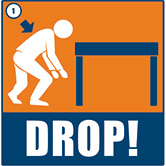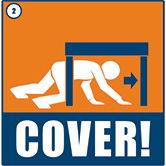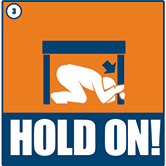Did you feel it?
Report it! Visit Earthquakes Canada to fill out the Felt Report Form.
You can help provide important information about the extent of shaking and damage for earthquakes in Canada.
Earthquake
 Earthquakes are common in BC; more than 1,200 are recorded each year. They are caused by the continual movement of tectonic plates and strike without warning.
Earthquakes are common in BC; more than 1,200 are recorded each year. They are caused by the continual movement of tectonic plates and strike without warning.
Earthquake Preparedness
 According to seismic experts, there is a 32% probability of a damaging earthquake occurring in our region in the next 50 years. Although we cannot predict when this will happen, you can be prepared to avoid injury, minimize damage to your home, and to survive afterwards for at least seven days without help.
According to seismic experts, there is a 32% probability of a damaging earthquake occurring in our region in the next 50 years. Although we cannot predict when this will happen, you can be prepared to avoid injury, minimize damage to your home, and to survive afterwards for at least seven days without help.
The most important thing to remember during an earthquake:

- DROP to the ground (before the earthquake drops you!)
- Take COVER by getting under a sturdy desk or table (or against a wall with your arms covering your head/neck), and
- HOLD ON to your shelter and be prepared to move with it until the shaking stops.
Experts in most areas of the world agree that these three steps are the best way to reduce injury and death during an earthquake.